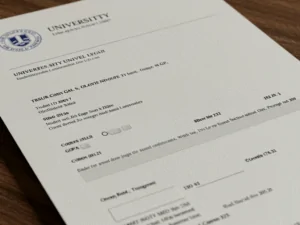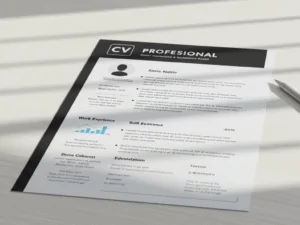Picture yourself skiing in Whistler, working in a vibrant Toronto café, or exploring Canada’s stunning landscapes while earning money to fund your adventure, Sounds exciting, doesn’t it? The International Experience Canada (IEC) program makes this dream a reality for young people aged 18–35 from over 35 countries, with access through Recognized Organizations (ROs).
Offering work permits for up to two years, IEC lets you live, work, and travel in Canada, gaining global skills and unforgettable experiences.
This guide dives into everything you need to know about IEC, from eligibility to application tips, tailored for Nigerians and others. Let’s explore how IEC can open doors to your Canadian adventure!
What Is International Experience Canada (IEC)?
International Experience Canada (IEC) is a government program run by Immigration, Refugees and Citizenship Canada (IRCC) that lets young people from partner countries work and travel in Canada for up to two years. Launched in 1956 with France as the first partner, IEC now includes over 35 countries, fostering cultural exchange and professional growth through bilateral Youth Mobility Agreements (YMAs). In 2025, IEC welcomed over 63,535 participants, with 10,274 invitations issued by January 17, 2025, per IRCC data.
IEC offers three unique categories to suit different goals:
- Working Holiday: An open work permit letting you work for almost any employer anywhere in Canada, ideal for travel and flexibility.
- Young Professionals: An employer-specific work permit for career-focused experience in your field, requiring a job offer.
- International Co-op (Internship): An employer-specific permit for students needing work placements to complete their studies.
Why It’s Popular: IEC is a gateway to Canada’s diverse culture, booming job market, and natural wonders, from Banff’s mountains to Montreal’s festivals. It’s perfect for Nigerians seeking international exposure, especially through ROs, as Nigeria isn’t a YMA partner.
Why Choose IEC in 2025?
IEC stands out for its flexibility, affordability, and life-changing benefits. Here’s why it’s a top choice for Nigerians and global youth in 2025:
1. Gain International Work Experience
IEC lets you build a resume with Canadian work experience, valued by employers worldwide. Whether you’re a barista in Vancouver or a marketing intern in Calgary, you’ll develop skills in a global economy.
- Working Holiday: Work in retail, hospitality, or ski resorts, earning CAD 15–25/hour (~₦24,000–40,000 at ₦1,600/CAD).
- Young Professionals: Gain experience in tech, finance, or engineering, with salaries of CAD 40,000–80,000/year.
- Co-op: Students in fields like IT or nursing complete internships, boosting employability.
Example: Chidi, a Nigerian, joins a Whistler resort via Working Holiday, earning CAD 18/hour and learning customer service skills.
Benefit: Stand out in Nigeria’s job market with global expertise.
2. Explore Canada’s Beauty and Culture
Canada’s landscapes and multicultural cities make IEC a travel adventure. With an open work permit, you can explore while working.
- Nature: Visit Niagara Falls, hike in Banff, or see the Northern Lights in Yukon.
- Cities: Experience Toronto’s diversity, Vancouver’s tech vibe, or Quebec’s French culture.
- Festivals: Join Calgary Stampede or Toronto’s Caribana.
Example: Ada, a Nigerian, works in Montreal’s cafés and attends African cultural events, feeling at home.
Benefit: Create lifelong memories while funding your travels.
3. Pathway to Permanent Residency
IEC work experience can boost your chances of staying in Canada through programs like Express Entry or Provincial Nominee Programs (PNPs).
- Express Entry: Skilled work (TEER 0–3) during IEC adds points to your Comprehensive Ranking System (CRS) score.
- PNPs: Provinces like British Columbia or Manitoba nominate IEC participants for PR.
- Stats: Over 20% of IEC participants apply for PR, with 60,000 transitioning in 2023 (IRCC).
Example: Emeka, a Nigerian, works as a tech analyst via Young Professionals, earning CRS points for PR via CEC.
Benefit: Build a long-term life in Canada’s stable economy.
4. Affordable Entry to Canada
IEC is cost-effective compared to study permits or other visas, with fees starting at CAD 179.75 in 2025.
- Fees:
- Application: CAD 179.75 (~₦287,600).
- Biometrics: CAD 85 (~₦136,000).
- RO Services (for Nigerians): CAD 2,000–4,000 (~₦3.2–6.4 million).
- Proof of Funds: CAD 2,500 (~₦4 million) for initial expenses.
- Health Insurance: CAD 500–1,000/year (~₦800,000–1.6 million).
Example: Funmi uses an RO like Stepwest, paying CAD 3,500 for support, and saves ₦10 million compared to a study permit.
Benefit: Access Canada without breaking the bank.
5. Flexible Work Options
IEC’s categories cater to different lifestyles, from adventurers to career builders.
- Working Holiday: No job offer needed; work in multiple cities or industries.
- Young Professionals: Secure a skilled job (TEER 0–3) for professional growth.
- Co-op: Gain academic credits while working in your field.
Example: Ngozi, a Nigerian student, completes a nursing internship in Alberta via Co-op, fulfilling her degree requirements.
Benefit: Choose a path that fits your goals.
6. Cultural Exchange and Networking
IEC connects you to people from 35+ countries, building global friendships and professional networks.
- Communities: Join Nigerian diaspora groups in Toronto or Calgary.
- Events: Attend job fairs or cultural festivals like Naija Day.
- Alumni: Network with 100,000+ IEC participants worldwide.
Example: Tolu meets Australian and French IEC participants in Vancouver, collaborating on a startup idea.
Benefit: Expand your global connections for life.
7. Safe and Welcoming Environment
Canada ranks #2 globally for safety (U.S. News 2025), with inclusive policies for foreigners.
- Low Crime: Cities like Ottawa and Halifax are safe for solo travelers.
- Diversity: 20% of Canada’s population is foreign-born (Statistics Canada 2024).
- Labor Laws: Employers must pay minimum wages (CAD 15–17/hour) and ensure safe workplaces.
Example: Chika, a Nigerian, feels welcomed in Edmonton’s Nigerian community, finding support through local churches.
Benefit: Thrive in a secure, inclusive country.
8. Language Skill Improvement
IEC offers chances to improve English or French, boosting your career.
- English: Work in Toronto or Vancouver to practice daily.
- French: Live in Quebec to learn or enhance French.
- Programs: Some ROs, like Languages Canada, include 12-week language courses.
Example: Aisha, a Nigerian, improves her French in Montreal, adding bilingual skills to her resume.
Benefit: Gain language skills for global jobs.
9. No LMIA Required
Unlike other work permits, IEC doesn’t require a Labour Market Impact Assessment (LMIA), simplifying the process.
- LMIA-Free: Employers don’t need to prove no Canadian can fill the job.
- Speed: Processing takes 6–8 weeks, faster than LMIA-based permits.
Example: Tunde secures a Working Holiday permit in six weeks, starting work in Banff’s tourism industry.
Benefit: Start your Canadian journey quickly.
10. Support from Recognized Organizations
Nigerians, not covered by YMAs, can apply via ROs like Stepwest or Languages Canada, offering job placement, housing, and visa support.
- Services: Job offers, resume help, and accommodation.
- Cost: CAD 2,000–5,200, depending on the package.
- Access: ROs help non-partner country citizens like Nigerians participate.
Example: Bola uses Stepwest’s RO program, securing a resort job in Whistler with housing included.
Benefit: Access IEC with expert guidance.
IEC Categories Explained
Each IEC category suits different needs. Here’s a breakdown:
Working Holiday
- Work Permit: Open, valid for 12–24 months (country-specific).
- Eligibility: No job offer needed; ideal for travelers.
- Jobs: Hospitality, retail, tourism, or seasonal roles (e.g., ski resorts).
- Quotas: High demand; UK has 9,000 spots, Italy 1,750 in 2025.
- Example: Kemi, a Nigerian via RO, works in Vancouver’s restaurants, exploring BC on weekends.
Young Professionals
- Work Permit: Employer-specific, valid for 12–24 months.
- Eligibility: Job offer in TEER 0–3 (e.g., marketing, IT); employer pays CAD 230 compliance fee.
- Jobs: Skilled roles in tech, finance, or healthcare.
- Quotas: Less competitive than Working Holiday.
- Example: Ifeanyi, a Nigerian, works as a data analyst in Toronto, gaining PR points.
International Co-op (Internship)
- Work Permit: Employer-specific, tied to your study program.
- Eligibility: Enrolled in a post-secondary institution; job offer required.
- Jobs: Internships in engineering, nursing, or business.
- Quotas: Smaller but steady availability.
- Example: Tope, a Nigerian student, interns at a Calgary hospital, completing her nursing degree.
Eligibility for IEC 2025
To join IEC, you must meet general and category-specific requirements. Nigerians apply via ROs, as Nigeria lacks a YMA with Canada.
General Requirements
- Citizenship: Citizen of a YMA country (e.g., Australia, UK) or use an RO for non-partner countries like Nigeria.
- Age: 18–35 (18–30 for some countries).
- Passport: Valid for your stay.
- Funds: CAD 2,500 (~₦4 million) for initial costs.
- Insurance: Health coverage for your entire stay.
- Admissibility: No criminal or medical inadmissibility.
- Travel: Round-trip ticket or funds to buy one.
- Fees: CAD 179.75 application fee; CAD 85 biometrics.
- Dependents: No family members can join under IEC.
Category-Specific Requirements
- Working Holiday: No job offer; some countries have residency requirements.
- Young Professionals: Signed job offer (TEER 0–3); employer compliance fee.
- Co-op: Enrolled student; internship tied to studies.
Nigerian Eligibility
- RO Access: Nigerians use ROs like Stepwest, requiring intermediate English and CAD 2,000–5,200 fees.
- Participation: First-time or repeat participation allowed via ROs.
- Example: Chinedu, a Nigerian, applies via Languages Canada, studying English for 12 weeks before working.
Note: Check IRCC’s website for country-specific rules, as quotas and participation vary.
Application Process for IEC 2025
Applying for IEC involves a randomized draw system, with pools opening December 16, 2024, and first invitations in January 2025. Nigerians use ROs for support. Here’s the step-by-step process:
Step 1: Check Eligibility (October–December 2024)
- Use IRCC’s “Come to Canada” questionnaire to confirm eligibility.
- Nigerians: Contact an RO like Stepwest for a consultation.
- Tip: Verify your country’s quota (e.g., Australia: unlimited; Taiwan: reduced by 2,240).
Step 2: Create an IRCC Account (December 2024)
- Register at IRCC’s website with a personal reference code from the questionnaire.
- Nigerians: RO will guide account setup.
- Tip: Use a reliable email for updates.
Step 3: Submit Your Profile (December 16, 2024–October 2025)
- Enter the IEC pool(s) for your category (e.g., Working Holiday).
- Upload:
- Passport copy.
- Proof of funds (bank statement, <7 days old).
- RO agreement (for Nigerians).
- Tip: Apply early to maximize invitation rounds.
Step 4: Receive Invitation to Apply (ITA) (January–October 2025)
- ITAs are issued randomly; check your IRCC account weekly.
- You have 10 days to accept the ITA.
- Tip: High-demand countries like France fill quotas fast; Nigerians via ROs face less competition.
Step 5: Submit Work Permit Application (Within 20 Days of ITA)
- Complete the application, uploading:
- Police certificate (if required).
- Medical exam (for health/childcare roles).
- Job offer (Young Professionals/Co-op).
- Insurance proof.
- Pay fees: CAD 179.75 (application), CAD 85 (biometrics).
- Young Professionals/Co-op: Employer pays CAD 230 compliance fee.
- Tip: Use IRCC’s document checklist to avoid delays.
Step 6: Biometrics and Processing (6–8 Weeks)
- Submit biometrics at a VFS Global center (e.g., Lagos or Abuja for Nigerians).
- IRCC processes applications in 6–8 weeks.
- Tip: Track your application online for updates.
Step 7: Receive Port of Entry (POE) Letter
- If approved, get a POE letter to present at Canada’s border.
- Nigerians: Exit Canada if already in-country to activate the permit.
- Tip: Book flights after receiving the letter.
Step 8: Arrive in Canada (By POE Letter Expiry)
- Show your POE letter, insurance, and funds at the border.
- Work permit is issued for 12–24 months.
- Tip: Arrive early to settle before working.
Example: Tunde, a Nigerian, applies via Stepwest in December 2024, gets an ITA in February 2025, and starts work in Banff by June 2025.
Costs for Nigerians
- Application Fees: CAD 264.75 (~₦423,600, including biometrics).
- RO Fees: CAD 2,000–5,200 (~₦3.2–8.3 million).
- Insurance: CAD 500–1,000/year (~₦800,000–1.6 million).
- Proof of Funds: CAD 2,500 (~₦4 million).
- Flights: ₦2–3 million round-trip.
- Initial Living: CAD 3,000 (~₦4.8 million) for rent/food.
- Total: ~₦10–14 million, offset by earnings (CAD 15–25/hour).
Tip: Save ₦15 million to cover costs; work 20 hours/week to recover expenses.
Challenges and Solutions for Nigerians
- No YMA:
- Challenge: Nigeria isn’t an IEC partner country.
- Solution: Use ROs like Stepwest or Languages Canada for access.
- High RO Costs:
- Challenge: CAD 2,000–5,200 fees.
- Solution: Compare ROs; choose packages with job/housing support.
- Competitive Pools:
- Challenge: Random draws mean no guaranteed ITA.
- Solution: Apply early; consider Young Professionals for higher chances.
- Documentation:
- Challenge: Police certificates or medical exams delay applications.
- Solution: Request documents 2–3 months early; use IRCC-approved clinics.
- Visa Activation:
- Challenge: Must exit Canada to activate the permit.
- Solution: Plan a short trip to the U.S. or Nigeria before starting work.
Example: Tope faces RO costs but chooses Languages Canada’s $5,200 package, securing a job and housing, recovering costs in four months.
Tips for a Successful IEC Application
- Apply Early:
- Submit your profile in December 2024 for maximum ITA chances.
- Nigerians: Contact ROs by October 2024.
- Research Quotas:
- Check IRCC’s website for country-specific spots (updated Fridays).
- Nigerians: ROs have limited quotas, so act fast.
- Secure Insurance:
- Buy coverage for your entire stay (e.g., BestQuote for CAD 500–1,000).
- Avoid provincial plans; they don’t meet IEC requirements.
- Prepare Documents:
- Get police certificates, medical exams, and bank statements ready by November 2024.
- Use VFS Global in Nigeria for biometrics.
- Avoid Scams:
- Use IRCC’s website or verified ROs like Stepwest.
- Never pay for guaranteed ITAs.
- Plan Your Arrival:
- Book affordable housing (e.g., shared rooms in Vancouver, CAD 800/month).
- Use Job Bank Canada for job leads.
Example: Chinedu applies in December 2024 via Stepwest, secures insurance, and lands a Calgary retail job by July 2025.
Why 2025 Is Perfect for IEC
- High Demand: 17,000 candidates entered pools by December 20, 2024, showing global interest.
- Job Market: Canada has 1.2 million vacancies in hospitality, tech, and healthcare (Job Bank 2024).
- Reduced Quotas: Countries like France and Taiwan face cuts, making early applications critical.
- RO Support: Nigerians benefit from expanded RO services, with Stepwest offering resort jobs.
- Digital Tools: IRCC’s online portal and RO webinars simplify applications.
Sample Plan for Nigerians
Scenario: Nigerian Youth via RO
- Profile: 25-year-old Nigerian, intermediate English, wants to work in tourism.
- Goal: Secure a Working Holiday permit via Stepwest, work in Banff.
- Timeline:
- October 2024: Contact Stepwest, pay CAD 3,500 RO fee.
- December 2024: Create IRCC profile, enter Working Holiday pool.
- February 2025: Receive ITA, submit application.
- April 2025: Get POE letter, book flights.
- June 2025: Arrive in Banff, start resort job.
- Budget:
- RO: ₦5.6 million.
- Fees: ₦423,600.
- Insurance: ₦1.2 million.
- Funds/Flights: ₦7 million.
- Total: ~₦14.2 million, offset by CAD 18/hour earnings.
Steps
- Research ROs (Stepwest, Languages Canada).
- Save ₦15 million by November 2024.
- Apply via IRCC with RO support.
- Secure insurance and documents.
- Plan housing and jobs before arrival.
Frequently Asked Questions
Can Nigerians apply for IEC without an RO?
No, Nigerians need an RO as Nigeria lacks a YMA with Canada.
How long is the IEC work permit valid?
12–24 months, depending on the category and country agreement.
What’s the IEC application fee in 2025?
CAD 179.75, plus CAD 85 for biometrics.
Can I bring my family on an IEC permit?
No, but they can apply separately for work or study permits.
How competitive is IEC 2025?
Very, with 63,535 total spots; early applications improve chances.
Final Thoughts
The International Experience Canada (IEC) program in 2025 is your ticket to an unforgettable adventure, blending work, travel, and cultural exchange in one of the world’s most welcoming countries. For Nigerians, ROs like Stepwest make IEC accessible, offering a chance to work in Canada’s vibrant cities or stunning resorts while building global skills. From the flexible Working Holiday to career-focused Young Professionals and Co-op internships, IEC caters to every dream. Start planning now—save funds, contact an RO, and apply early to secure your spot. Ready to live your Canadian dream? Check these official links to begin!
Apply Now:








